Antoine Prouvost
The Machine Learning for Combinatorial Optimization Competition (ML4CO): Results and Insights
Mar 17, 2022

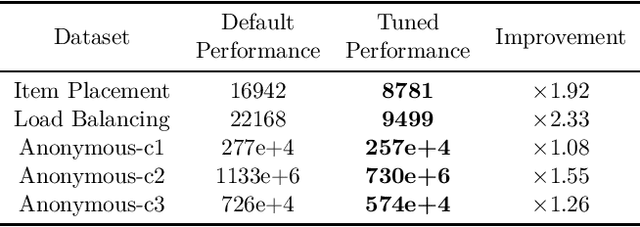
Abstract:Combinatorial optimization is a well-established area in operations research and computer science. Until recently, its methods have focused on solving problem instances in isolation, ignoring that they often stem from related data distributions in practice. However, recent years have seen a surge of interest in using machine learning as a new approach for solving combinatorial problems, either directly as solvers or by enhancing exact solvers. Based on this context, the ML4CO aims at improving state-of-the-art combinatorial optimization solvers by replacing key heuristic components. The competition featured three challenging tasks: finding the best feasible solution, producing the tightest optimality certificate, and giving an appropriate solver configuration. Three realistic datasets were considered: balanced item placement, workload apportionment, and maritime inventory routing. This last dataset was kept anonymous for the contestants.
Ecole: A Library for Learning Inside MILP Solvers
Apr 06, 2021


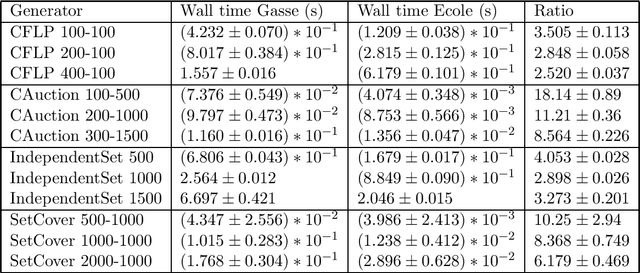
Abstract:In this paper we describe Ecole (Extensible Combinatorial Optimization Learning Environments), a library to facilitate integration of machine learning in combinatorial optimization solvers. It exposes sequential decision making that must be performed in the process of solving as Markov decision processes. This means that, rather than trying to predict solutions to combinatorial optimization problems directly, Ecole allows machine learning to work in cooperation with a state-of-the-art a mixed-integer linear programming solver that acts as a controllable algorithm. Ecole provides a collection of computationally efficient, ready to use learning environments, which are also easy to extend to define novel training tasks. Documentation and code can be found at https://www.ecole.ai.
Ecole: A Gym-like Library for Machine Learning in Combinatorial Optimization Solvers
Nov 24, 2020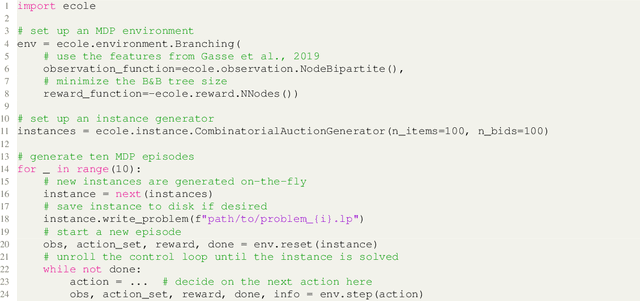
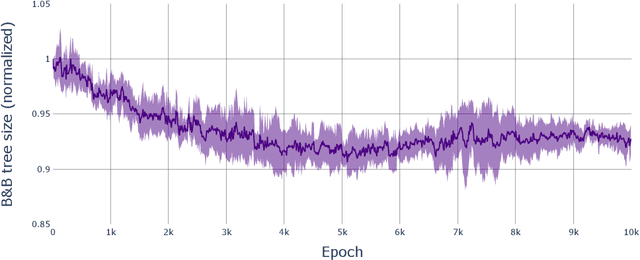
Abstract:We present Ecole, a new library to simplify machine learning research for combinatorial optimization. Ecole exposes several key decision tasks arising in general-purpose combinatorial optimization solvers as control problems over Markov decision processes. Its interface mimics the popular OpenAI Gym library and is both extensible and intuitive to use. We aim at making this library a standardized platform that will lower the bar of entry and accelerate innovation in the field. Documentation and code can be found at https://www.ecole.ai.
Machine Learning for Combinatorial Optimization: a Methodological Tour d'Horizon
Nov 15, 2018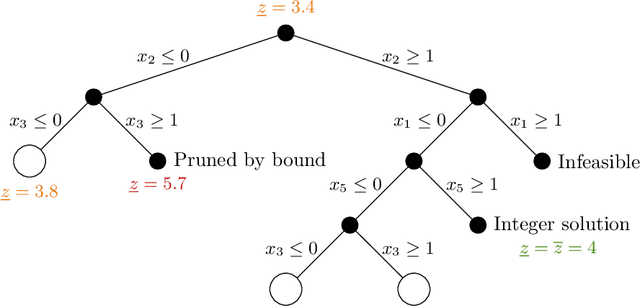
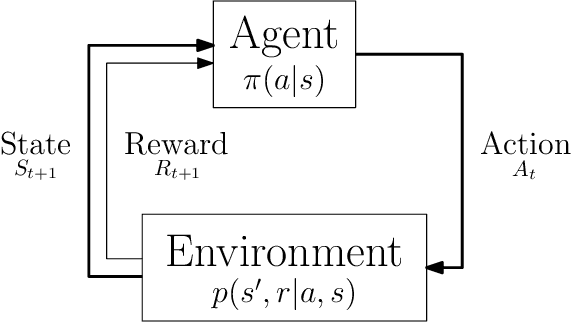
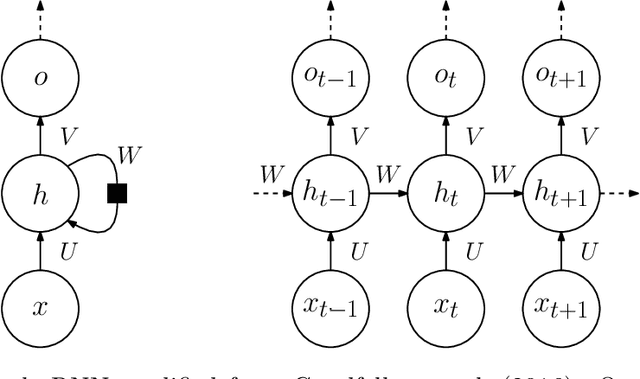
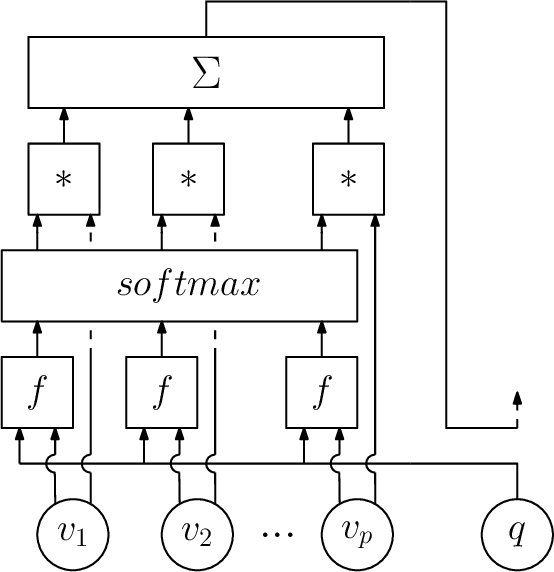
Abstract:This paper surveys the recent attempts, both from the machine learning and operations research communities, at leveraging machine learning to solve combinatorial optimization problems. Given the hard nature of these problems, state-of-the-art methodologies involve algorithmic decisions that either require too much computing time or are not mathematically well defined. Thus, machine learning looks like a promising candidate to effectively deal with those decisions. We advocate for pushing further the integration of machine learning and combinatorial optimization and detail methodology to do so. A main point of the paper is seeing generic optimization problems as data points and inquiring what is the relevant distribution of problems to use for learning on a given task.
 Add to Chrome
Add to Chrome Add to Firefox
Add to Firefox Add to Edge
Add to Edge